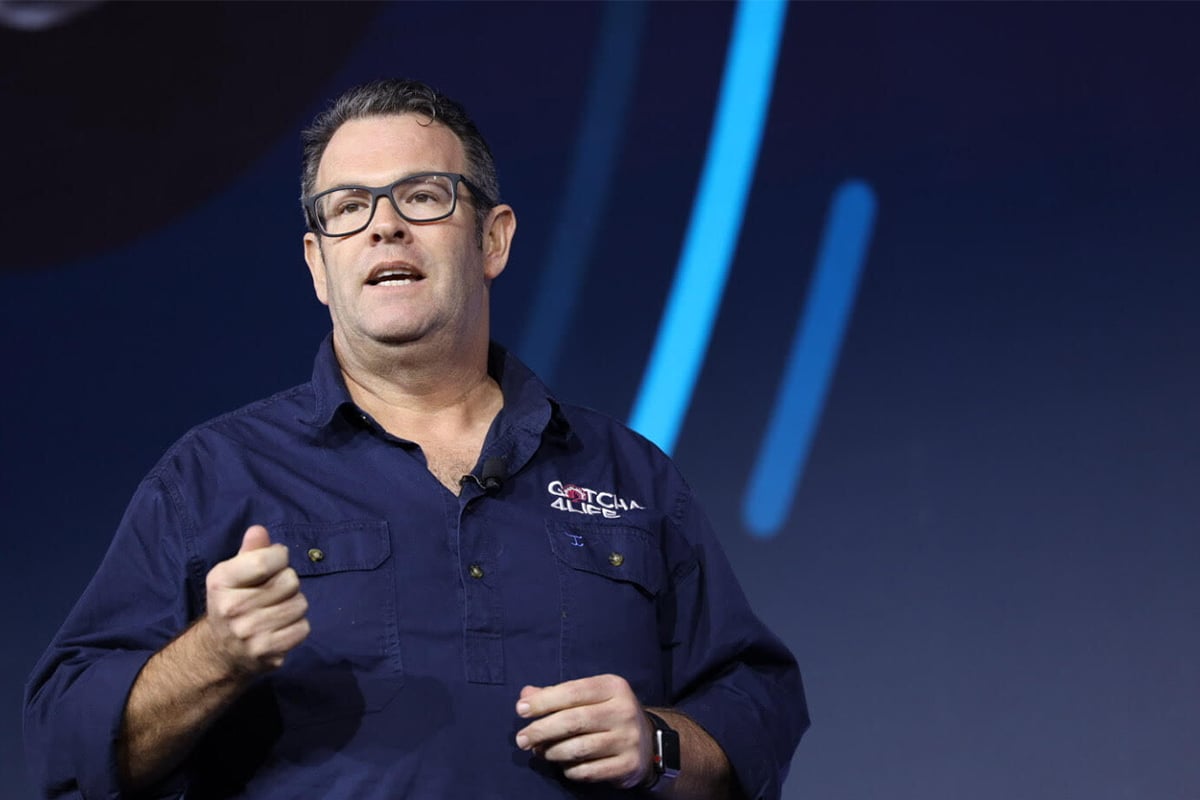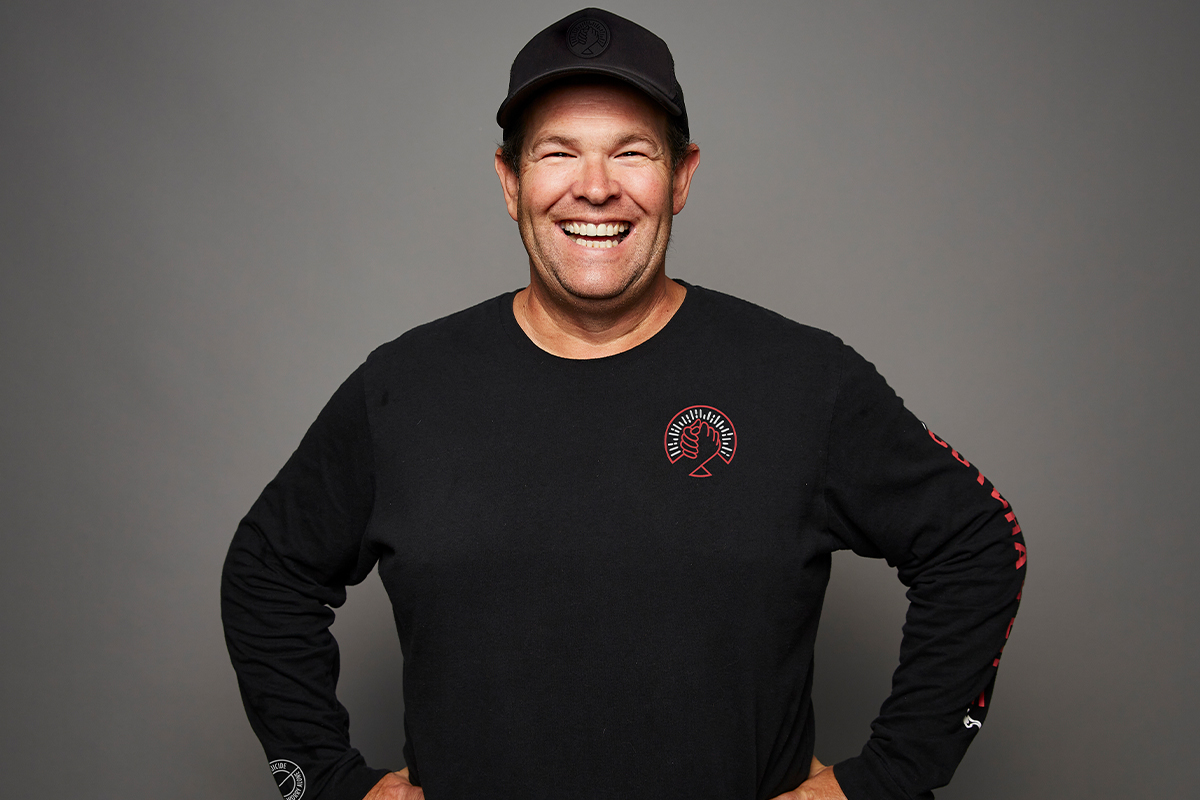Gus Worland has worn many hats throughout his career. From running a pub to then pivoting into sales, he eventually ended up in the media, which led Worland to dip his toes into the glamorous world of TV and radio. It suited him perfectly.
But it wasn’t until a close friend passed away that his true passion in life began to take form. Worland, who was working as a radio host at the time, decided to make a bold move by sharing this experience with his audience.
“It was the first time on a very blokey radio show that I actually showed some real vulnerability and spoke to our audience about my friend,” he admits. “I was one of hundreds of people that would’ve dropped anything for him because he certainly was the type of guy that would drop anything for you.”
Faced with the realization that there were likely many more people keeping their worries to themselves – with sometimes devastating consequences – Worland launched ‘Man Up’, an Heiress Films production, principally financed by the Movember Foundation in association with the University of Melbourne. The three-part documentary, broadcast by the Australian Broadcasting Corporation, challenges and redefines what it means to be a man navigating the modern world.
“Just by having a little bit more information about people and realizing that everyone’s going through stuff, it really does open up this really lovely culture. And I think that’s the culture that we should be building.”
“I traveled all around Australia. I spoke to every typical Australian male, female and everyone in between,” he says.
The program was the catalyst that added another dimension to Worland’s already thriving career as a radio and TV star: normalizing conversations around mental health.
His next step was to establish an organization called Gotcha4Life. Its mission is to prevent suicides by giving people the tools to build emotional muscle and social connection.
While many of us may be highly qualified or experienced in a particular field, the set of skills that describes ‘mental fitness’ are often missing in our leadership toolkit. “I know plenty of people that are super smart, book smart, but, at the end of the day, they’ve never learned this stuff.”
“Everyone thinks straight away, ‘mental health, oh, that’s something negative. That’s someone else’s issue. That’s not me. I’ve just got a few things going on.’ Okay, well let’s talk about mental fitness. Just like your physical fitness, some days you’re ready to run the marathon, other days it’s hard to get off the sofa,” Worland says.
In his role as the icebreaker, Worland leads his crusade with a philosophy that reflects the famous quote: “Insanity is doing the same thing over and over and expecting different results”.
Why invest in mental fitness?

His sessions with corporate work teams are focused on mental fitness training, which he tells The CEO Magazine, is an ideal strategy for businesses struggling to attract and retain talent.
“That is a really good start to be able to show, ‘we’ve got a culture here where we want to make everyone mentally fit’. Some people give gym memberships or they build a gym in the office. Well, I think the more important discussion is mental fitness,” he suggests.
By investing in mental fitness, Worland believes that the results will show for themselves. “[Companies] get it all back in terms of productivity, in terms of loyalty to that company. So it’s an absolute win–win.”
Perhaps the biggest misconception surrounding leadership is the bulletproof vest and ‘strength-at-all-times’ mentality that Worland is actively seeking to dismantle through vulnerability.
“Leaders are lonely and they are because they always feel traditionally that they have to stand up in the front, puff their chest out, whether it’s a man or woman,” he asserts. “Being normal, being a human being, having your ups and downs is what leadership is all about.”
“Being normal, being a human being, having your ups and downs is what leadership is all about.”
During a recent session with one of the Big Four banks, Worland recalls a top executive sharing a struggle in his personal life. Rather than causing the team to perceive him as weak or less capable, the session had quite the opposite effect.
“Just by having a little bit more information about people and realizing that everyone’s going through stuff, it really does open up this really lovely culture. And I think that’s the culture that we should be building,” Worland enthuses.
Worland, who is a father to three young adults, has also noticed the positive impact his mental health first aid training has had on his role as a caregiver. While this may be the case in his own family, he worries that not enough people are armed with the mental fitness first aid needed to help themselves and others in navigating life’s challenges.
The first step, he says, is to encourage a culture in which employees feel that they don’t have to wear a mask to work and to focus on making small incremental changes over time.
“Relationship and financial pressures are both risk factors for mental ill-health and suicide. With pressure growing in these two areas over the next couple of years as people experience the impacts of increasing interest rates, it’s going to be really tough for a lot of people. So it’s time for action.”
If you need to speak with someone, please call or visit:
Lifeline: 13 11 14 (Australia only)
Suicide Stop – International Help Center: https://www.suicidestop.com/call_a_hotline.html
To find out more about the Gotcha4Life Foundation, or to donate, visit: gotcha4life.org







